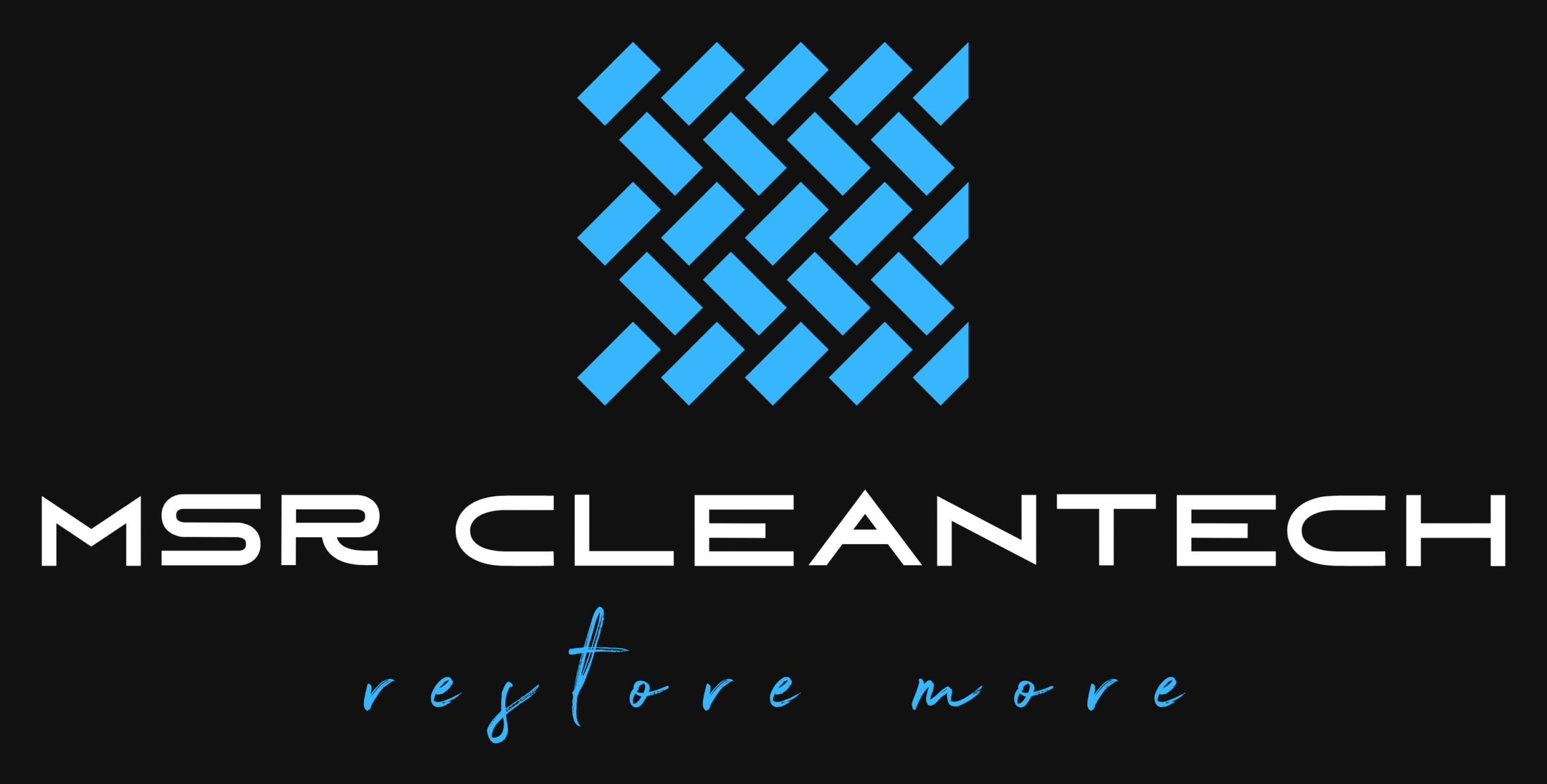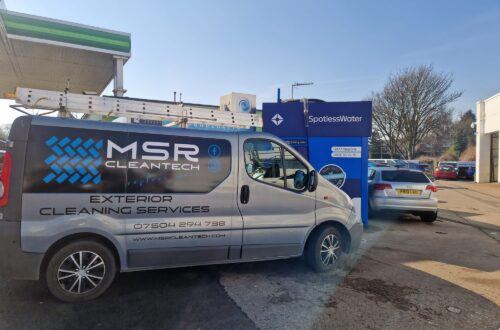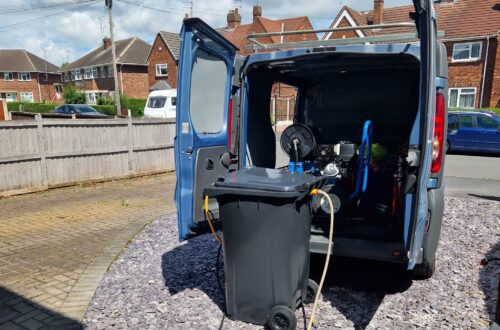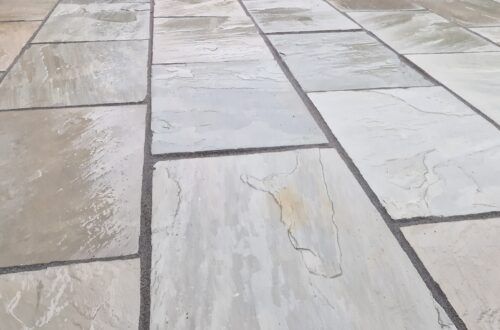How To Quote Accurately For A Block Paving Driveway Clean?
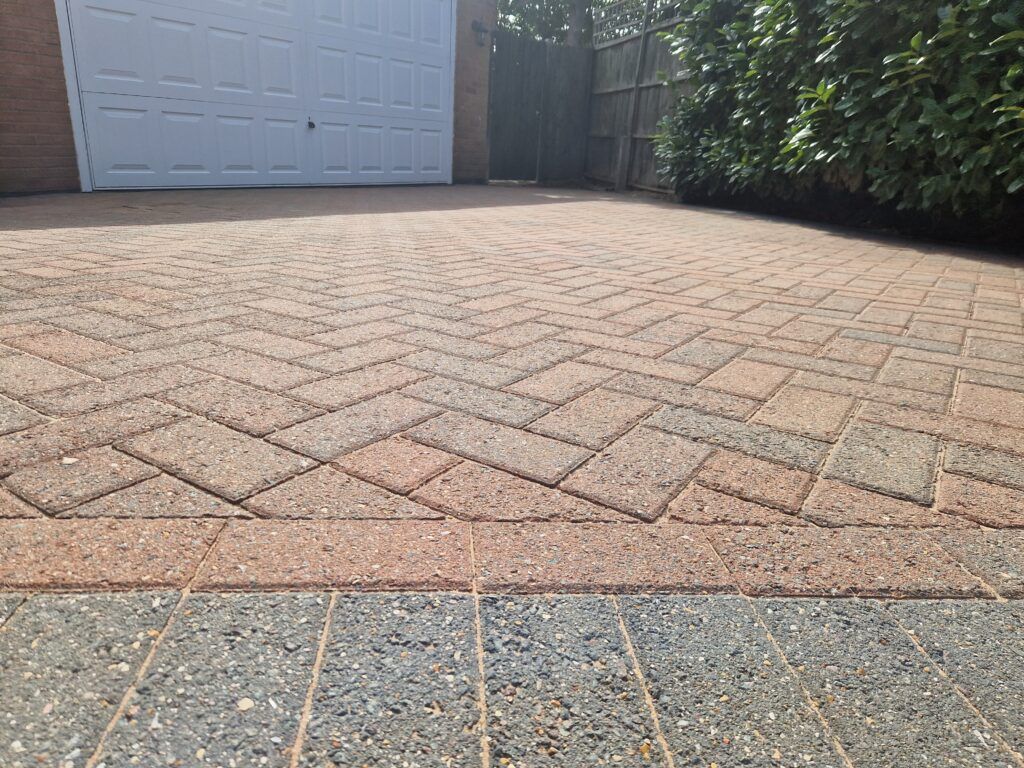
Starting a pressure washing business can be both exciting and challenging. One of the biggest challenges for beginners is learning how to quote accurately for jobs. Having gained some experience in this area, I’d like to share my insights. Quoting too high could put off potential customers, while quoting too low might leave you short of profit. So, how do we get it right?
In this guide, I’ll walk you through the key aspects to consider when quoting for a block paving driveway clean, ensuring you account for everything from the size of the driveway to the materials and effort required.
1. Charging Per Square Meter vs. Day Rate: Which Method to Choose?
Per Square Meter Pricing
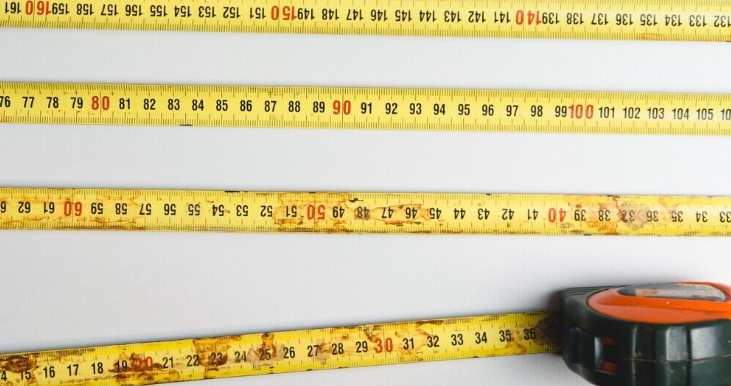
For most beginners, quoting per square metre is one of the simplest and most transparent ways to price a block paving driveway clean. This method allows you to provide customers with a clear cost based on the size of the area to be cleaned.
The average rate in the UK for pressure washing block paving typically ranges from £2.50 to £4 per square metre, with some areas reportedly going as high as £7
I have personally started charging £4 per square metre with room for additional charges which we will get in to later in the article. £4 is a price that covers block paving cleaning and re-sanding. This price covers the following on a standard job:
- Labour costs
- Kiln-dried sand for re-sanding
- Fuel (both van diesel and pressure washer petrol)
- Cleaning chemicals like Sodium Hypochlorite (Hypo)
This list clearly outlines what’s included. Factor in all these costs to calculate the per square metre price. At £4 per square metre, you’ll still secure a decent profit. Of course, feel free to charge more if you believe it’s necessary based on your specific circumstances or the job complexity.
That being said, as you’ll discover in this article, how much you charge is ultimately up to you. The key is to focus on the quality of service you provide, not just the price. Keep that in mind when setting your rates.
If a job involves multiple processes like re-sanding, using cleaning chemicals, or dealing with drainage issues that might extend the time on-site, per metre would make sense. Just make sure to clearly communicate the expected job duration to your client and explain how this affects the price.
Day Rate Pricing

Some pressure washing businesses charge a day rate, especially for larger or complex jobs where estimating time-based solely on area size is difficult. A typical day rate in the UK ranges from £150 to £350 per day, again this all depends on the level of complexity of the job. In my opinion, you’ll definitely want to aim closer to the £350 mark, or more, for a full day’s work with expenses included.
Remember that your day rate needs to cover not only your labour costs but also your business expenses and any specific costs related to the job. I don’t prefer this method because, with every job being different, it’s hard to predict what challenges you might face until you start the job.
Quoting per square metre guarantees you’re compensated for the exact work needed, while the customer pays a set price tailored to their specific requirements.. This is why a day rate is not my prefference.
A day rate may work better for you if you prefer a fixed amount that you’re comfortable earning each day, with expenses obviously factored in. Ultimately, it’s up to you what you charge. The market is competitive and there’s no strict set pricing. As long as you provide a high-quality service, you should charge what you feel is fair.
Pros and Cons: Per Square Meter vs Day Rate
Per Square Metre
Pros
- Transparency for Clients: Clients receive a clear price based on the size of the area, making it easy for them to understand the quote.
- Fair Compensation: You’re properly compensated for the exact amount of work you do, especially for larger jobs.
- Easy to Adjust for Complexity: This method allows you to easily factor in additional services like re-sanding, chemical usage, or drainage issues.
- Consistency: Regardless of the job size, you maintain a consistent rate, which can help with customer trust and expectations.
Cons
- Smaller Jobs May Not Be Profitable: For smaller areas, a per square metre price might not cover your expenses or time effectively.
- More Calculations Needed: You need to accurately measure and calculate the area for each job, which can be time-consuming
- Additional Costs Need to Be Explained: If the job involves extra steps like re-sanding or chemical usage, these must be communicated and factored into the per metre price, which may complicate the quote.
Day Rate
Pros
- Predictable Income: By setting a day rate, you know exactly how much you will earn each day, regardless of the size or scope of the job. This can provide financial stability, especially if you book multiple days of work in advance.
- Simplicity in Quoting: A day rate eliminates the need for complex calculations when quoting jobs. You can quickly give customers a price, which can make the process faster and easier for both you and the client.
- Flexibility with Complex Jobs: For larger or more complicated tasks, where it’s hard to estimate the time required based on area alone, a day rate can cover unexpected challenges. This can be particularly useful when the job involves additional elements like heavy staining or intricate surfaces.
- Customer Trust: Some customers might appreciate knowing the cost upfront without worrying about being charged extra if the job takes longer than expected.
Cons
- Inconsistent Job Demands: Since each job can vary significantly in difficulty, you might end up doing more work on some days compared to others, without additional compensation. This can lead to a situation where you’re undercharging for particularly challenging jobs.
- Difficult to Estimate Time: It’s tough to predict exactly how long some jobs will take, and this uncertainty can lead to either overestimating and losing business or underestimating and working more than you anticipated for the same pay.
- Lack of Fairness for the Customer: Customers may feel that a flat day rate isn’t reflective of the actual work being done, especially if the job takes less time than expected. This could lead to dissatisfaction or the perception that they’re paying too much for a smaller job.
- Potential for Lower Profit: If the job turns out to be easier or quicker than anticipated, you may end up earning less overall compared to pricing each job based on specific work requirements.
This balance of predictability and flexibility versus fairness and potential lost earnings is something to consider when deciding how to charge for pressure washing services.
Both pricing models have their strengths and weaknesses, and it’s up to you to choose the method that suits your business and customers best.
2. Re-sanding or Grit Filling: Understanding the Paving Block Type
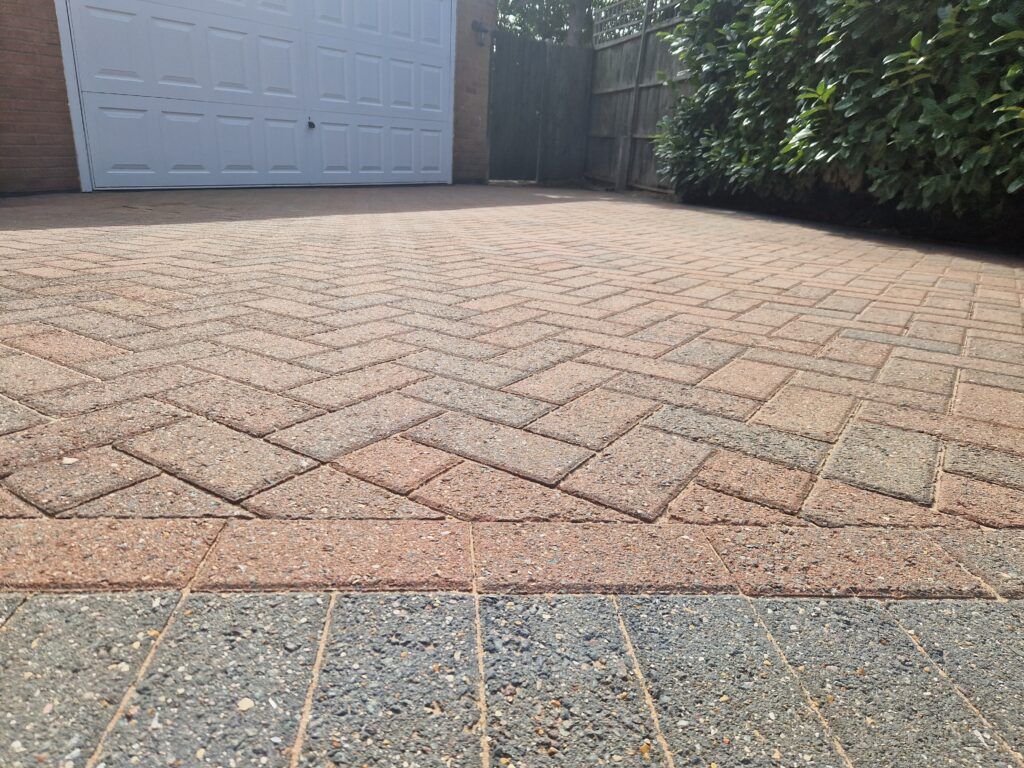
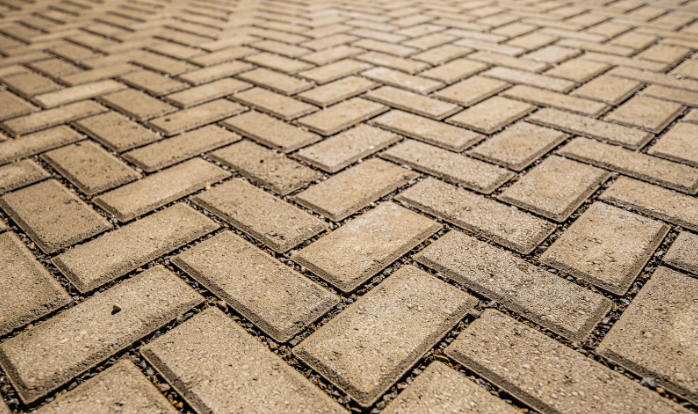
Second Image by Western Interlock DIY
I won’t dive too deeply into the different types of block paving in this post, as I think that deserves a full article on its own. However, I will mention that there are two main types of block paving: non-permeable and permeable.
The reason this matters is that non-permeable block paving requires re-sanding with kiln-dried sand, while permeable block paving needs joint grit. Joint grit is typically more expensive than kiln sand, so you’ll want to keep this in mind when quoting. You’ll need to adjust your price per square metre or day rate accordingly to account for the higher cost of joint grit if required.
- Non Permeable = Kiln Dried Sand
- Permeable = Joint Grit
3. Chemical Usage: Should You Include Chemical Treatment in Your Quote?
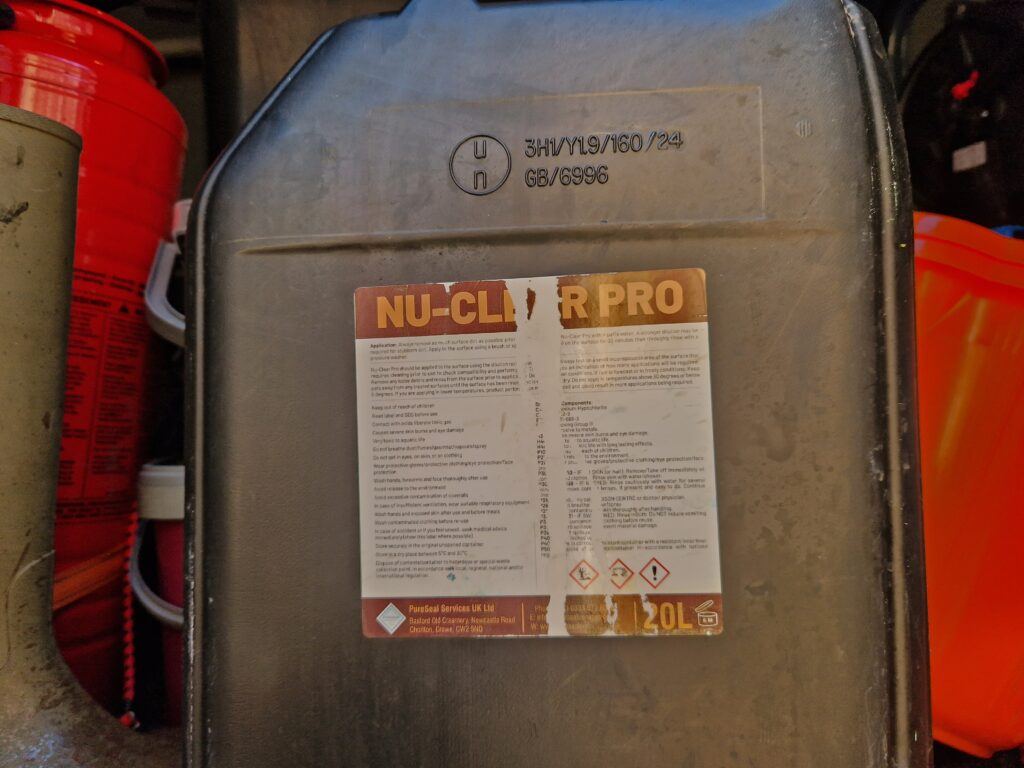
When cleaning block paving driveways, it’s not always enough to rely on water pressure alone. Stubborn stains like algae, moss, black spot etc, may require the use of chemicals like Sodium Hypochlorite, being a popular choice in the UK for treating organic growth.
Including chemicals in your quote is important as they represent an additional cost. Sodium Hypochlorite, for example, costs around £10 per 5-litres, give or take, but can be bought in bulk which will save you on costs. I use a company called PureSeal as They have a good delivery system and products.
The exact amount you’ll need depends on the size of the driveway and the severity of the stains, but a standard driveway may require around 5-10 litres of diluted solution. , usually at a 5:1 Hypo to Water ratio. I typically get between 3-4 driveways cleaned using a 25 litre drum of Hypo, so I use this as a rough estimate when quoting my jobs.
When using other cleaning chemicals, it’s important to factor in the cost of the product and estimate how much you will use. This can be done by checking the per square metre coverage typically listed on the product label. For example, while I’ve mentioned Sodium Hypochlorite (Hypo), many other products vary in price. To ensure accurate quoting, adjust your per square metre price or day rate based on the chemical costs for each specific job. This keeps your pricing fair and reflects actual material use.
4. Setting a Minimum Charge for Small Areas: Ensuring Profitability

For smaller driveways, it may not be practical to quote based on square meter pricing alone. This is where a minimum charge comes in handy. Setting a minimum charge ensures that even small jobs are profitable by covering your travel, setup, and time costs.
For example, you might set a minimum charge of £100-£150 for areas under 20 square meters. This protects you from undercharging for jobs that, although smaller, still require the same amount of effort in terms of setup and breakdown. Be upfront about your minimum charge with clients so that there are no surprises later.
5. Factoring in Expenses: Pressure Washer Fuel and Other Costs
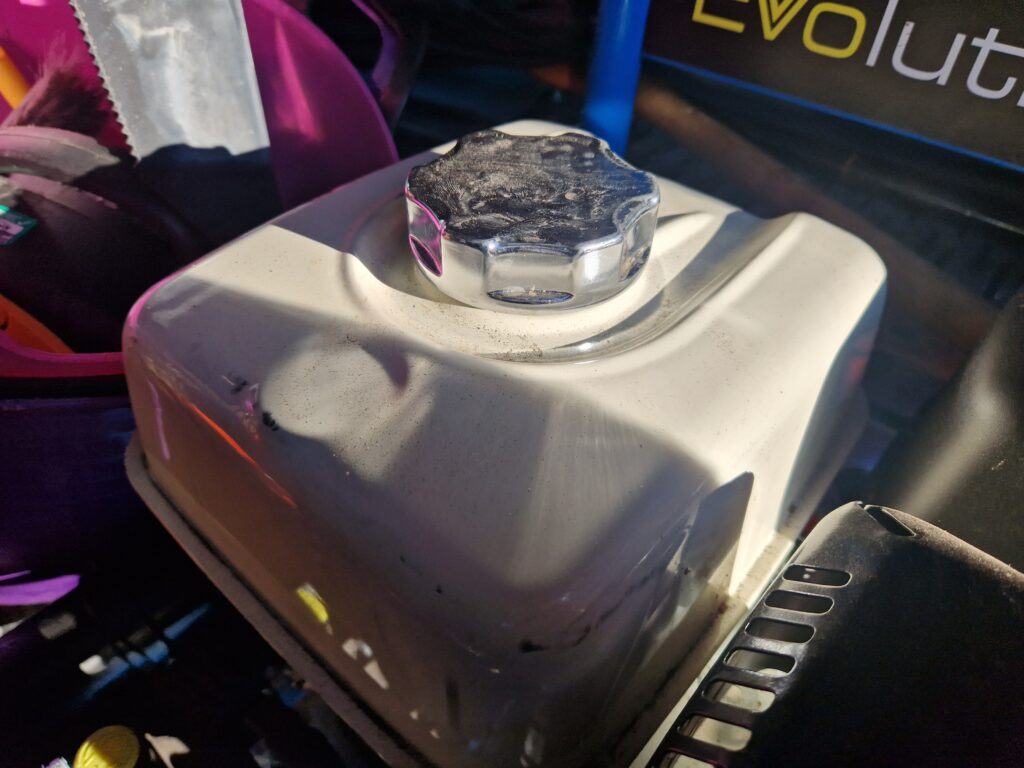
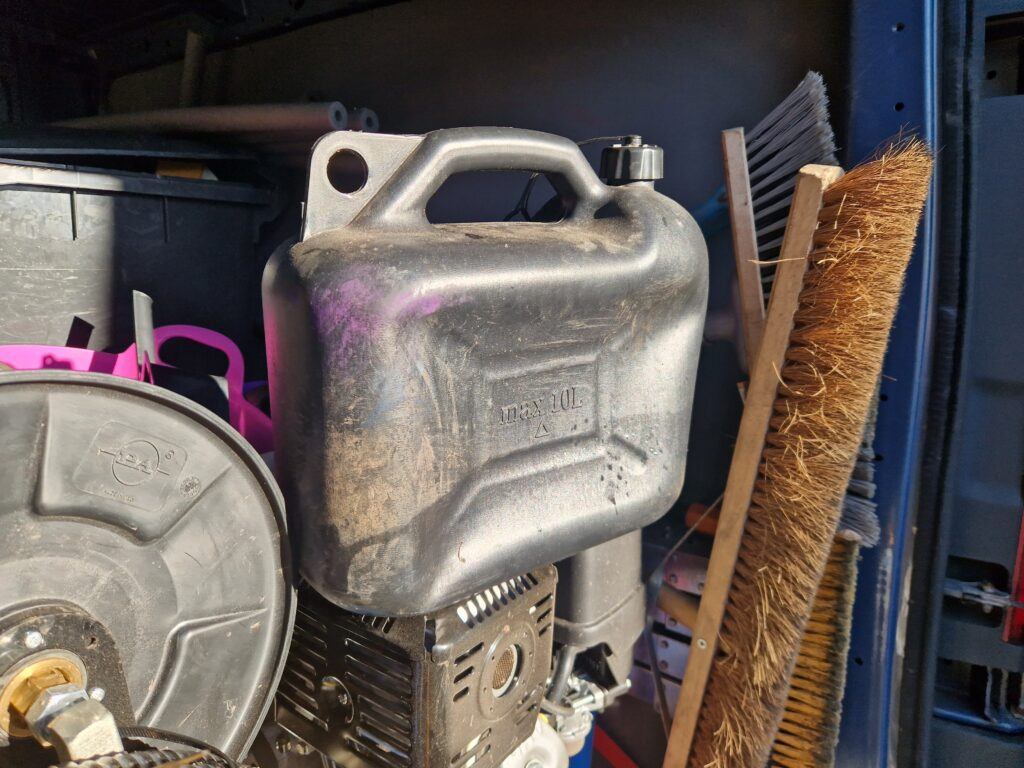
Your quote should always account for expenses like fuel for your pressure washer. If you’re using a petrol-powered machine, fuel costs can add up quickly. A typical pressure washer might consume around 1-2 litres of fuel per hour, again, a rough estimate, as this all depends on the machine you are using.
For a standard driveway clean, you could easily use 4-8 litres of fuel or more, so factor this into your quote. When you first start out you will not be as efficient as you could posssibly be and it may take you 10 hours to clean a 50-60m2 driveway, so be sure to factor in fuel costs accordingly.
Top Tip !
Best practice is to take detailed notes, especially on your first ten jobs. This helps you track how much things are costing you, providing a clearer understanding of your expenses per job. By reviewing these notes, you’ll gain better insights into your actual costs, which will ultimately make your quoting process more accurate and efficient. Over time, this practice will help you refine your pricing strategy to ensure profitability while maintaining competitive rates.
Pricing In Additional Products
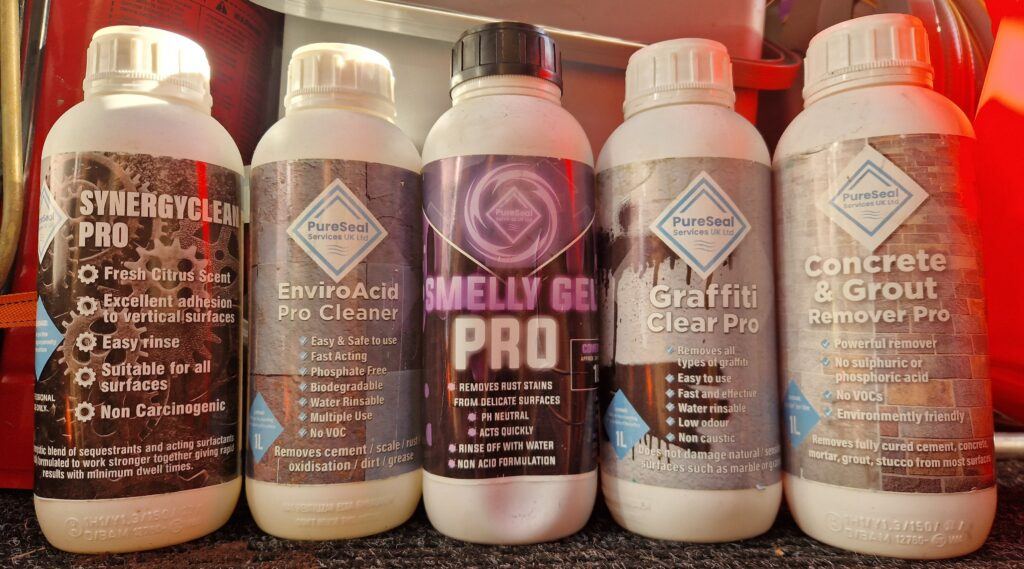
Other expenses might include other products that have specific use cases. For example, I have used something called concrete & Grout cleaner before on a job where water pressure alone would not remove the concrete stains on the driveway. This product costs about £20 per litre and I used one litre of this on a particular job.
When it came to the quote I charged the £4 per square metre and then added £35 to account for additional product fees and labour costs to apply the additional product as these often have 1 hour plus wait times to take effect.
This additional extra was all explained to the customer on my visit. I explained exactly what I needed to use on the concrete stains and why.
You will have occasions where other products are needed to create a great result. Always be sure to communicate this to your customer in person if possible and then dedicate a section on your quote to the said products as an additional charge.
Equipment Maintenance Costs
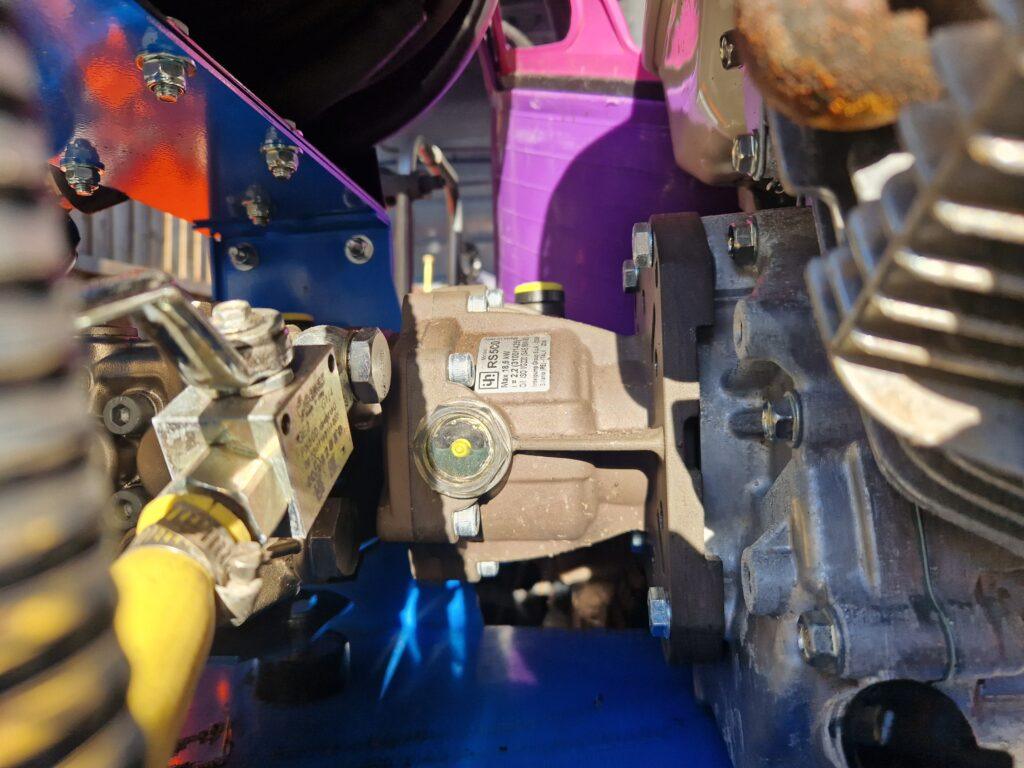
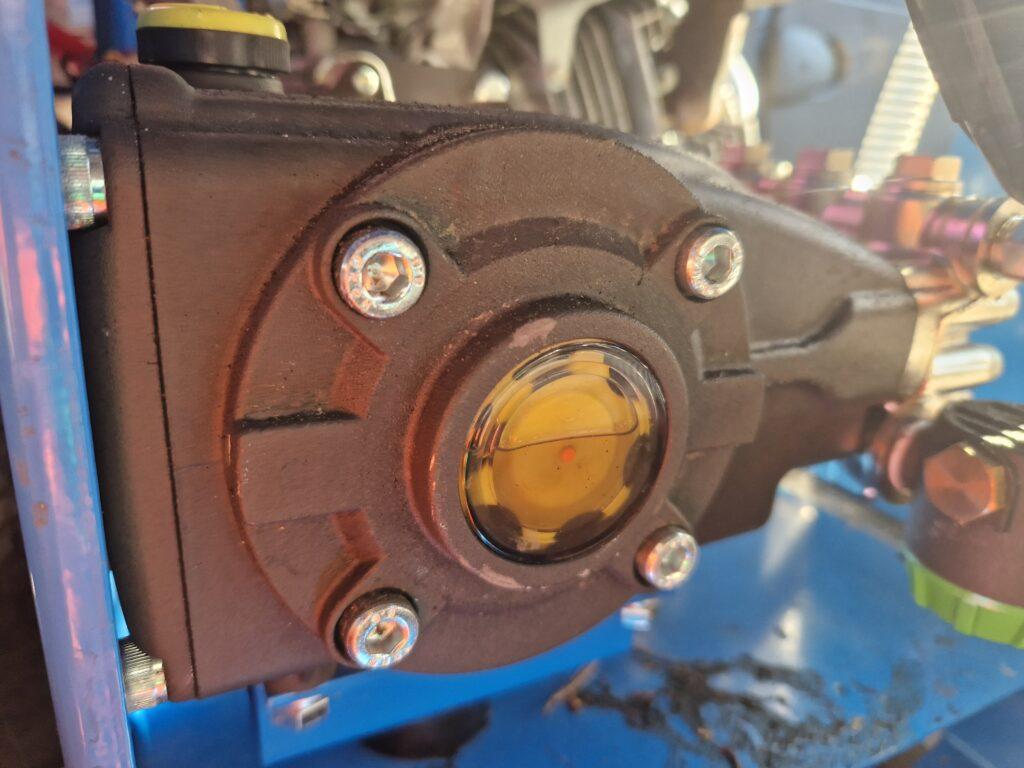
Maintenance costs for your equipment can sometimes be overlooked. These are indirect costs that aren’t tied to any specific job but still affect your bottom line. For example, you’ll need to account for things like oil for your pressure washer engine, pump, and gearbox.
Regular servicing of your pressure washer also costs money, and these expenses come directly out of your pocket. That’s why it’s crucial to ensure these costs are covered by your “profit.” This is just another reason why you need to charge a reasonable, yet fair, amount to leave yourself with enough financial room to cover these ongoing expenses.
Business Costs

In addition to maintenance costs, you’ll also have general business costs to consider, such as:
- Marketing costs
- Insurance
- Van maintenance
- Transport fuel costs
These are just a few examples, and there will be more as your business grows. It’s important to keep these in mind when quoting for jobs, instead of underpricing just to win work.
There are many start-up pressure washing businesses out there charging very low rates, and I honestly struggle to see how they make any money. For example, charging £80 for a driveway clean simply doesn’t make sense to me—it’s unlikely to cover all your costs, let alone leave you with a healthy profit.
You need to factor in all of the above when pricing your services, so you can offer customers great value while ensuring you’re left with a solid profit after all expenses.
6. Time and Effort: How to Account for Labour in Your Quote
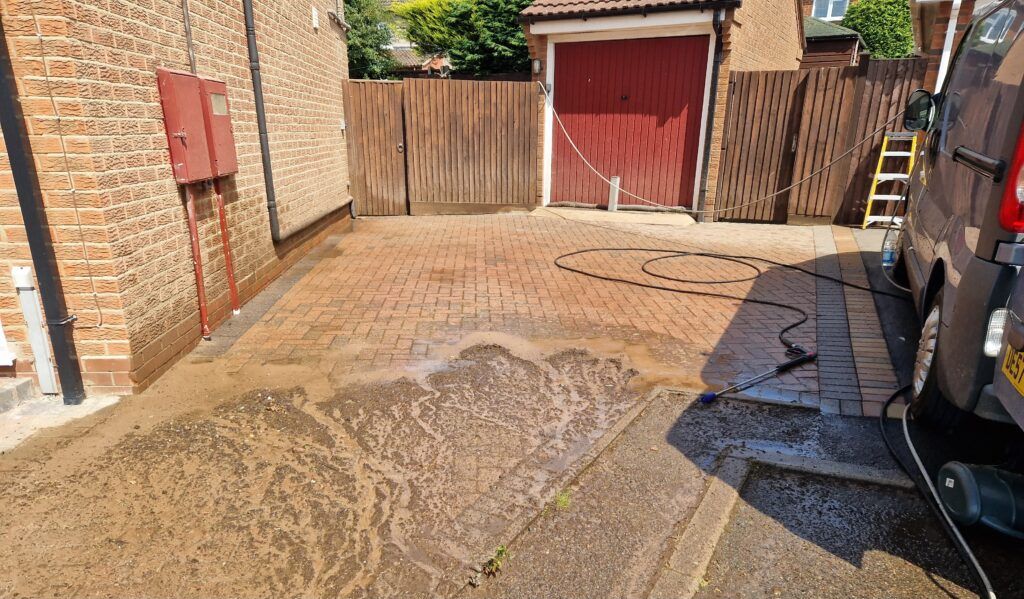
Cleaning a block paving driveway can be time-consuming, and it’s important to factor the total time and effort involved when quoting for a job. A small, relatively clean driveway may take 2-3 hours, while a larger or heavily stained one might require 5-6 hours or even longer if additional processes like re-sanding are needed and the area is very large.
Don’t forget to include the time it takes to set up and pack down your equipment, and always allow for some extra time for unforeseen circumstances. By accurately estimating the labour required, you can ensure that your quote reflects not only the time spent cleaning but also the overall effort involved.
Drainage Considerations
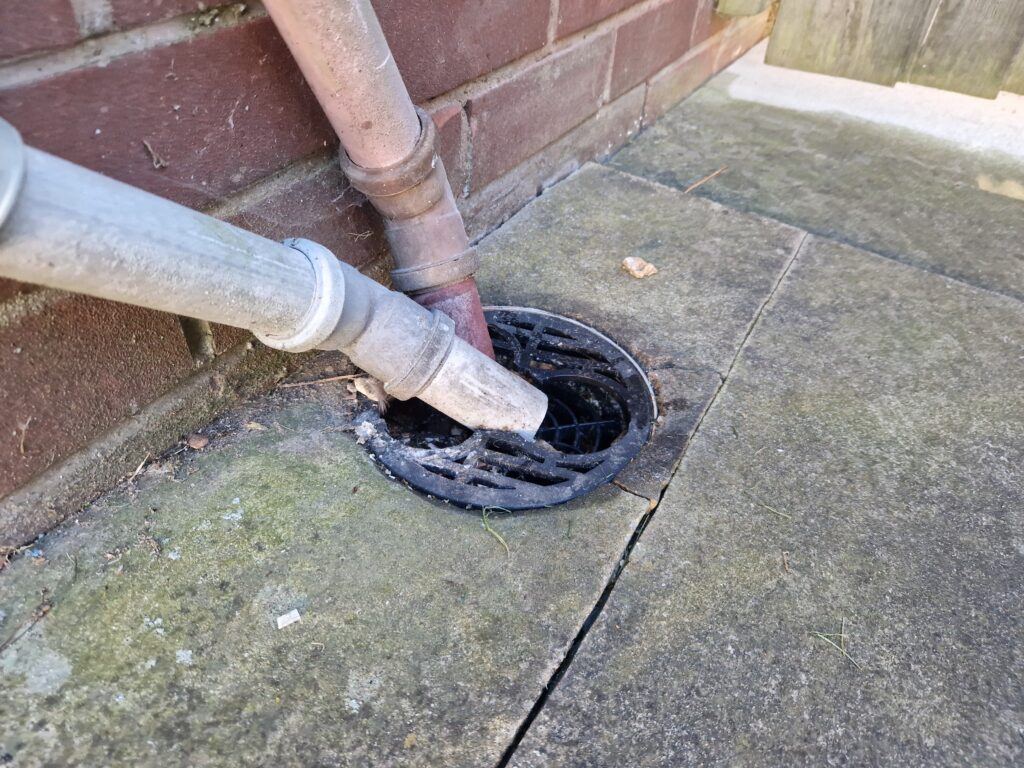
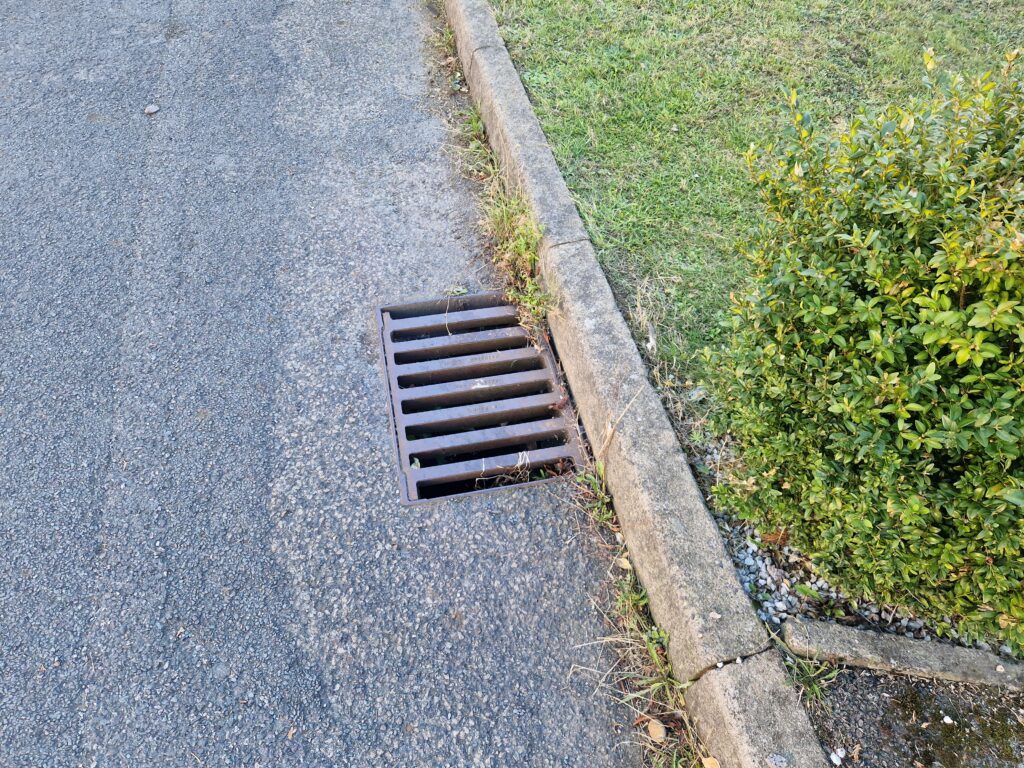
One thing to look out for is drainage. I now always check for sufficient drainage on a property because, more often than not, I find myself needing to clean out the drains to allow water to flow away properly. This takes extra time on the job, as it usually involves more sweeping and shovelling of debris into waste disposal bags.
As a result, I always check drains beforehand and factor this into my quote. If the drains are heavily blocked, for example, I’ll charge an extra £0.25 to £0.50 on top of my standard £4 per square metre to account for the additional time and effort required to clear them. Poor drainage may extend the cleaning time, so make sure to adjust your quote accordingly. In some cases, you might also recommend drainage improvements to the client as part of your service.
Low Water Pressure
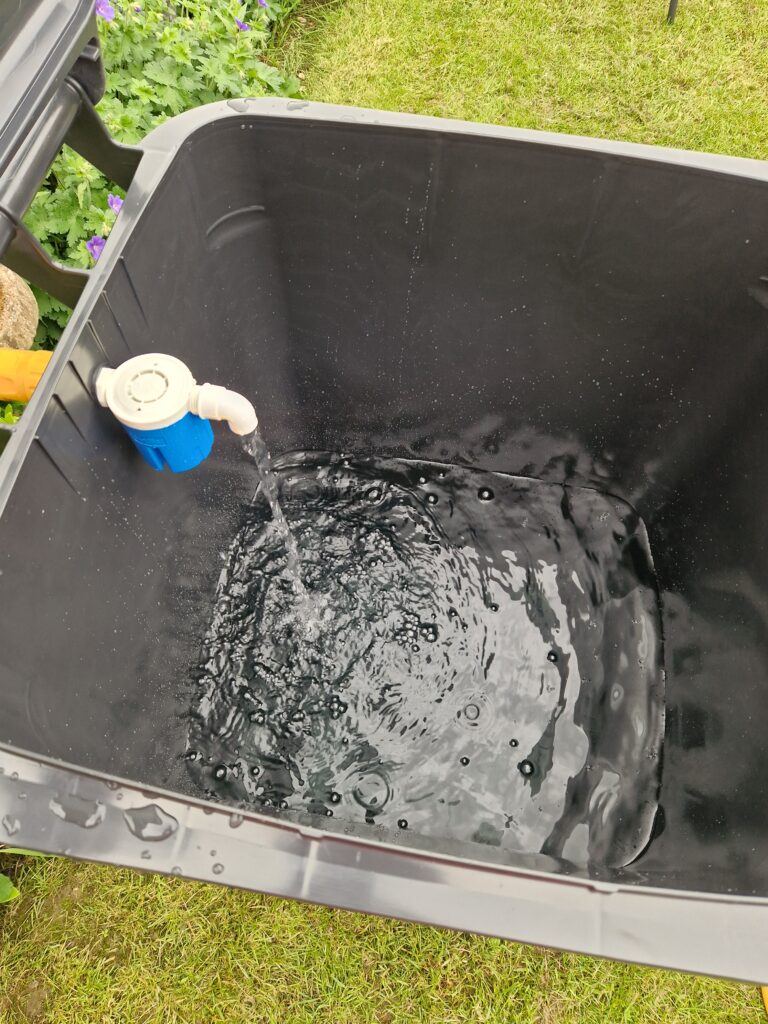
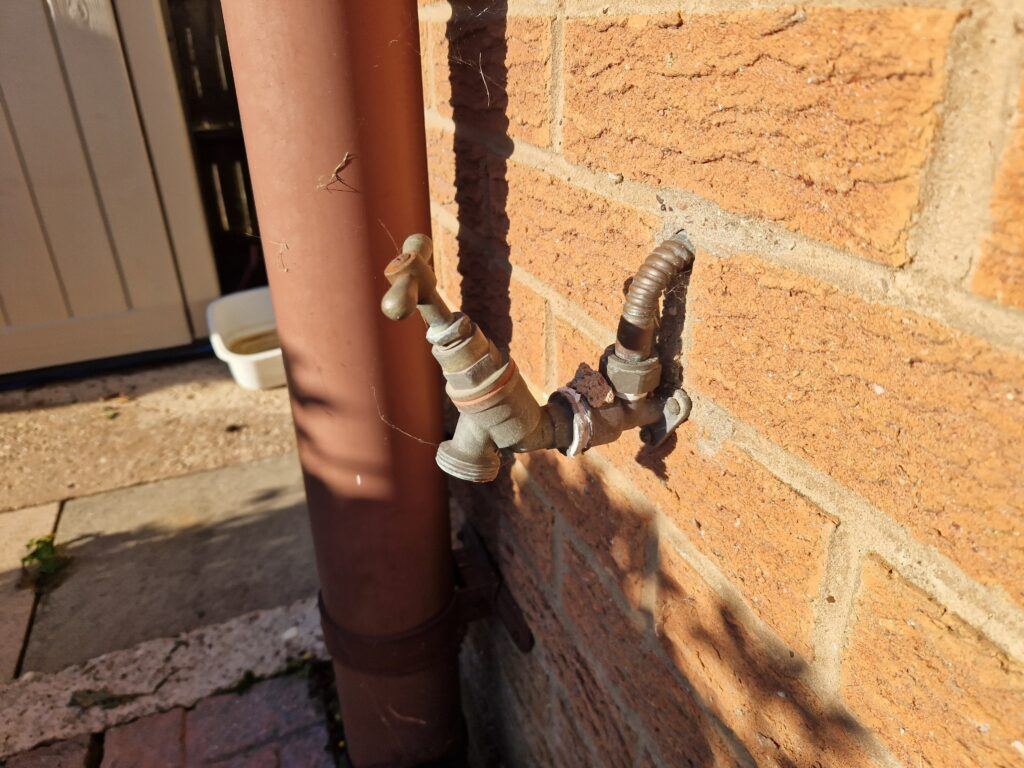
This is a significant issue that can impact your efficiency. Unfortunately, if your customer has poor water pressure, your buffer tank will run out quickly, especially when using a high-flow machine like a 21Lpm. I bring this up to make you aware because, regardless of the size of your buffer tank, it will still need to refill with water during use. A larger tank won’t make much difference if the water pressure is low, and travelling with a fully filled 1000-litre tank is not always feasable or advisable for safety and practicality reasons.
Low water pressure means you’ll likely spend more time waiting for your buffer tank to refill, which extends the job duration. Because of this, adding a small charge on top of your per square metre price to account for the extra time shouldn’t be frowned upon—it’s simply part of the job’s requirements.
Do I Need a Buffer Tank For My Pressure Washer
Top 4 Pressure Washing Accessories To Save Time As A Beginner
7. Travelling to Pick Up Materials: Don’t Forget the Kiln-Dried Sand
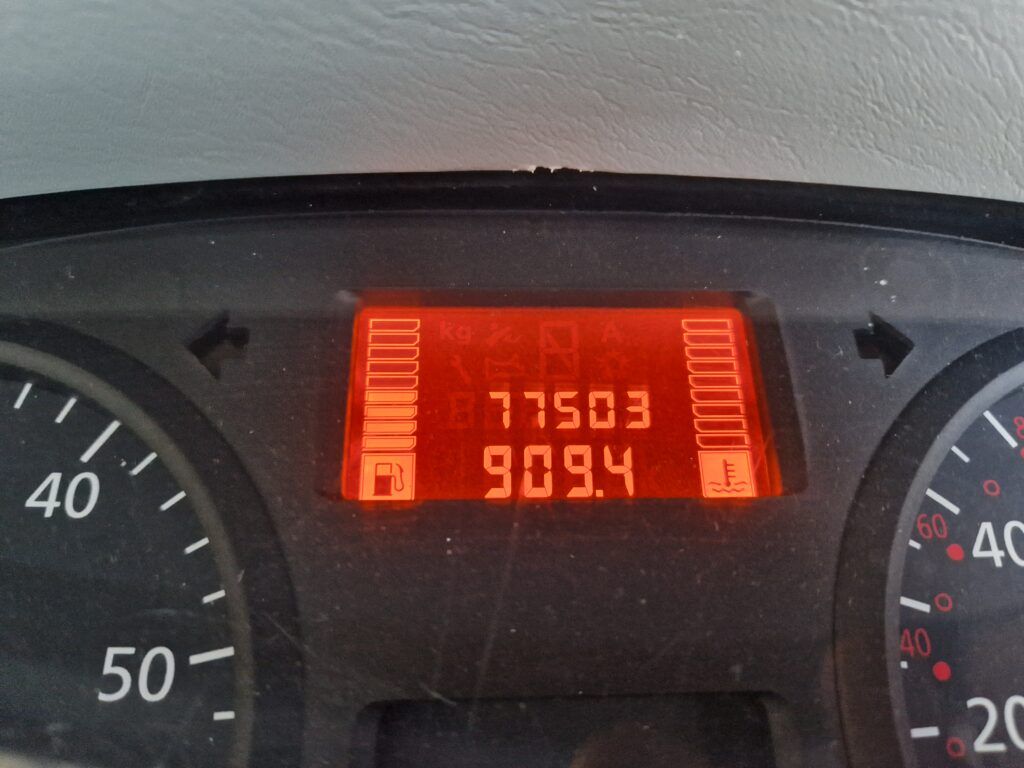
Many pressure washing businesses forget to include travel time when quoting for jobs. However, if you need to collect materials like kiln-dried sand from a supplier, this adds both time and fuel costs that should be accounted for.
For example, if you need to travel 10-15 miles to pick up supplies, you’ll need to consider the fuel cost and the time spent on the journey. This should be included in your quotation, either factored into the per square metre price or the day rate. When explaining your pricing to clients, it’s a good idea to add travel time as a bullet point, so they understand what your rate covers.
I’m repeating this to emphasise the importance of fully understanding your costs, ensuring your price is both fair and profitable. Overlooking travel for materials is a common mistake, and it’s one I’ve made myself more than a few times. Factoring this in will help avoid cutting into your profits.
Conclusion: Key Takeaway
Accurately quoting for a block paving driveway clean involves much more than simply estimating the size of the job. From factoring in your time and effort to accounting for materials like sand and chemicals, every detail plays a role. By considering all the elements discussed in this guide—pricing models, materials, labour, and additional expenses—you can provide clients with a clear, fair, and profitable quote.
Remember, the more experience you gain, the quicker and more accurate your quoting process will become. Start small, keep track of your time and costs, and continuously refine your process to build a successful and sustainable pressure washing business.
I hope this article has provided some valuable insights and will help you move forward with quoting. If there’s anything you feel should be added or clarified, please feel free to leave a comment below!
Exterior Cleaning, England, South Yorkshire UK


